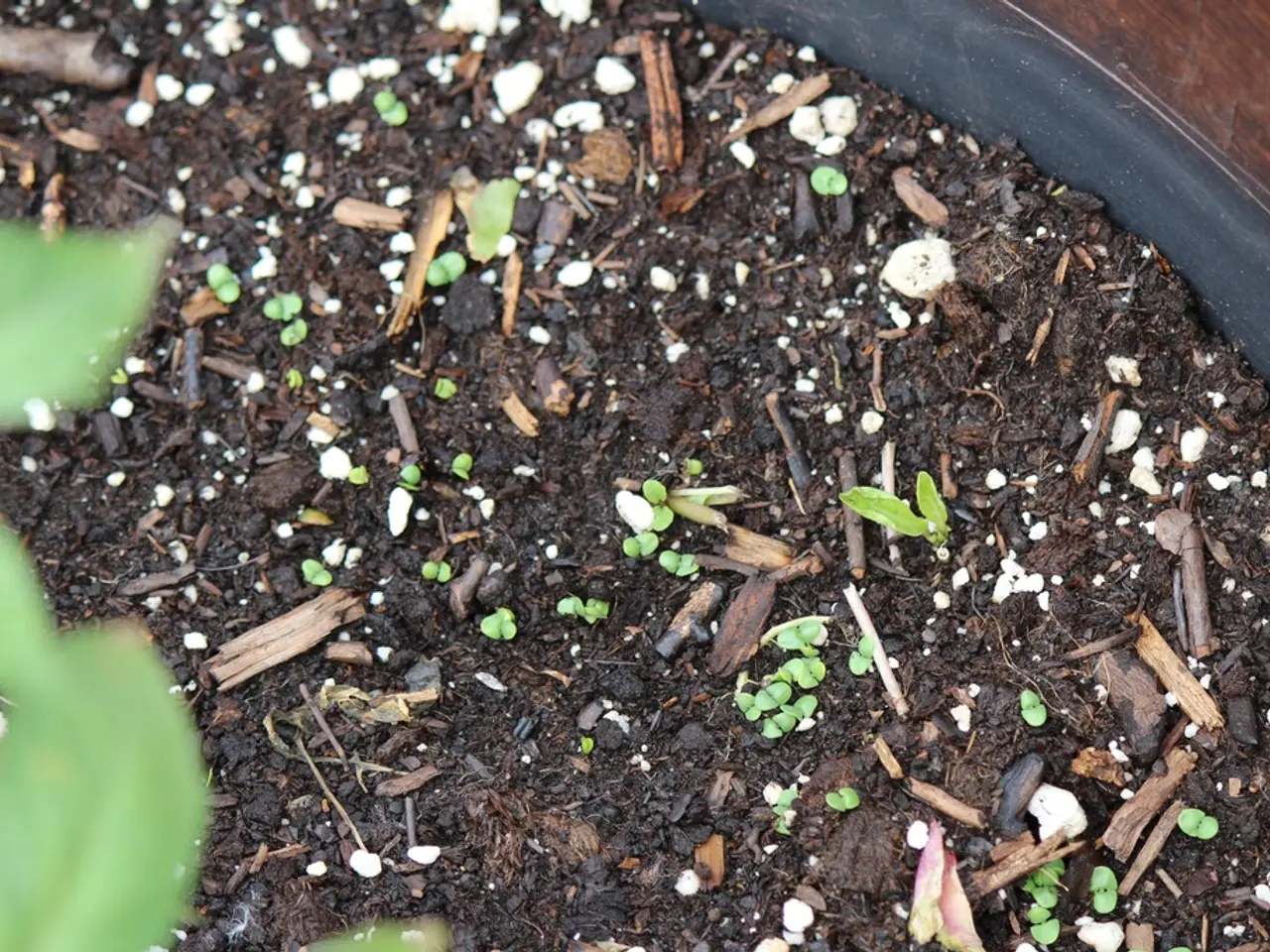Nurturing a single plant? Start with tending the earth first.
In the heart of a lush garden, a transformation is taking place. The author of the YouTube channel Wineberry Hill, a once avid user of chemical fertilizers, is learning the importance of nurturing living soil.
The health of a garden, encompassing vegetables, herbs, fruits, and animal feed, hinges on the quality of the soil. However, the author's initial reliance on chemical fertilizers led to a series of negative consequences. The use of these substances resulted in the appearance of diseases, pests, and a decreased yield in the garden.
"I was supporting a dependent system, not an ecosystem," the farmer admits. He now understands that soil can be restored through simple steps, such as avoiding the digging up of beds to preserve the fungal mycelium.
The farmer advocates for leaving plant roots in the ground to feed beneficial inhabitants in the soil. He emphasizes that healthy soil regulates water, temperature, and wards off diseases. Without microbial life (fungi, bacteria, worms, insects), soil becomes "dirt."
Over-reliance on chemical fertilizers can result in a chemical dependency in gardening. The farmer warns that improper care of soil can lead to the appearance of diseases, pests, decreased yield, and drier, harder soil.
To revive and maintain living, healthy soil for a garden without chemical fertilizers, focus on building organic matter, supporting soil life, and using natural soil improvement methods such as adding compost, mulching, and planting cover crops (green manure).
Key strategies include:
- Add abundant organic matter: Regularly incorporate compost, leaf mold, worm castings, wood chips, and composted manure to improve soil structure, moisture retention, and nutrient supply.
- Use cover crops (green manure): Plant species like clover, vetch, mustard, or rye during off-seasons or between crops. These plants add organic matter and can fix nitrogen naturally, reducing the need for fertilizers.
- Adopt no-till or minimal till gardening: Minimizing soil disturbance preserves microbial communities and soil structure, maintaining healthy carbon levels.
- Incorporate kitchen and garden scraps: Use methods like double digging to layer organic material beneath native soil, allowing it to compost in place, thus building fertile soil.
- Mulching: Applying organic mulch suppresses weeds, retains moisture, and gradually adds nutrients as it breaks down.
- Support soil life: Encourage earthworms and beneficial microbes through organic practices and avoiding chemical inputs that harm them.
By combining these approaches, gardeners can restore and maintain healthy, living soil ecosystems that nourish plants naturally without relying on chemical fertilizers. The farmer's garden, once hard and dry, is now teeming with life, requiring less watering, fewer weeds, fewer diseases, and bringing genuine joy from the garden.
The farmer's journey serves as a reminder of the importance of maintaining healthy soil for a successful garden. As he puts it, "Living soil is not a product that can be bought, but something that must be grown."
- The farmer's shift towards organic gardening practices, such as avoiding chemical fertilizers and incorporating methods like composting and cover cropping, showcases his growing understanding of the importance of supporting the ecosystem in his garden.
- Embracing the principles of a healthy lifestyle, the farmer recognizes that nurturing the soil through responsible gardening practices, like minimizing tillage and encouraging earthworms and beneficial microbes, is essential for promoting plant growth and discouraging pests and diseases.
- As he works to transform his garden from a chemical-dependent system to a living, thriving ecosystem, the farmer demonstrates that scientific advancements in health-and-wellness and fitness-and-exercise can extend beyond personal well-being, offering insights into sustainable gardening practices with long-term benefits for both the environment and our kitchen tables.




